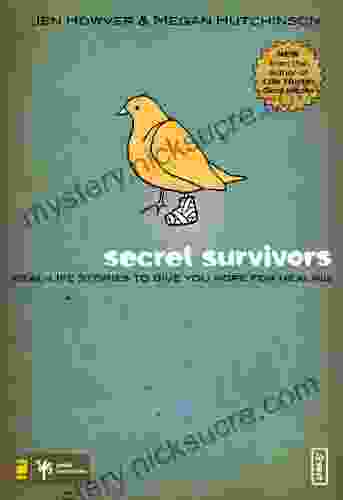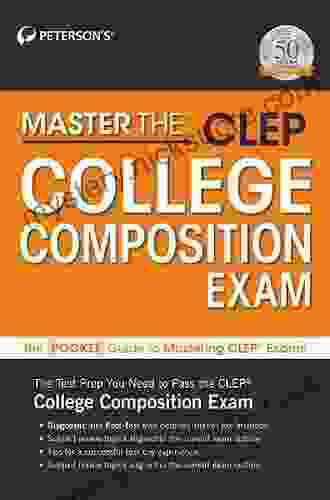Zinc: Sources And Significance To Human Health

Zinc, an essential trace mineral, plays a critical role in a multitude of physiological processes within the human body. From boosting the immune system to promoting healthy growth and development, zinc is indispensable for maintaining optimal health. Understanding its sources and significance is paramount for individuals seeking to optimize their well-being.
Dietary Sources of Zinc
Zinc is widely present in a variety of food groups, allowing for ample opportunities to meet daily requirements. Red meat, in particular, stands out as an excellent source, with 100 grams of cooked lean ground beef providing approximately 5 milligrams of zinc. Other animal-based sources include poultry, fish (especially oysters and sardines),and dairy products.
Plant-based foods also contribute to zinc intake, although their bioavailability (the amount the body can absorb) may be lower compared to animal sources. Legumes, such as beans, lentils, and chickpeas, are good sources, along with nuts (almonds, cashews),seeds (pumpkin seeds, chia seeds),and whole grains.
4.2 out of 5
| Language | : | English |
| File size | : | 9004 KB |
| Text-to-Speech | : | Enabled |
| Screen Reader | : | Supported |
| Enhanced typesetting | : | Enabled |
| Word Wise | : | Enabled |
| Print length | : | 22 pages |
| Lending | : | Enabled |
Absorption and Bioavailability
The absorption of zinc varies depending on several factors, including the form consumed and other dietary components. Heme iron, found in animal products, enhances zinc absorption, while phytates present in plant foods can inhibit it. Additionally, high intakes of calcium and iron supplements may compete with zinc absorption.
Physiological Significance of Zinc
Zinc is involved in over 300 enzymatic reactions within the body, making it crucial for a wide range of functions. Here are some highlights:
- Immune function: Zinc supports the development and activation of immune cells, bolstering the body's defense against infections.
- Growth and development: Zinc is essential for proper growth and development in children and adolescents, supporting bone formation, muscle growth, and cognitive function.
- Wound healing: Zinc plays a vital role in the synthesis of collagen, a protein necessary for wound healing and tissue repair.
- Hormone production: Zinc is involved in the production of certain hormones, including insulin and testosterone.
- Antioxidant activity: Zinc acts as an antioxidant, protecting cells from damage caused by free radicals.
Zinc Deficiency and Consequences
Zinc deficiency is relatively rare in developed countries but can occur in certain populations, such as those with compromised immune systems, digestive disorders, or poor dietary intake. Some of the potential consequences of zinc deficiency include:
- Impaired immune function and increased susceptibility to infections
- Growth retardation, delayed sexual development
- Skin lesions, hair loss
- Impaired wound healing
- Cognitive deficits, including memory and learning difficulties
Recommended Daily Intake
The recommended daily intake of zinc varies depending on age, sex, and physiological status. For adults, the recommended daily intake is as follows:
- Men: 11 milligrams
- Women: 8 milligrams
- Pregnant women: 12 milligrams
- Breastfeeding women: 13 milligrams
Supplementation and Toxicity
While most individuals can meet their zinc needs through a balanced diet, supplementation may be necessary in certain cases, such as those with zinc deficiency or malabsorption disorders. Zinc supplements are available in various forms, including tablets, capsules, and lozenges.
Excessive zinc intake can be harmful, potentially leading to nausea, vomiting, abdominal pain, and other adverse effects. In severe cases, zinc toxicity can impair the absorption of other essential minerals and cause immune dysfunction. It is important to consult with a healthcare professional before taking zinc supplements to avoid exceeding safe levels.
Zinc is an indispensable nutrient with far-reaching implications for human health. By understanding its sources, physiological significance, and recommended intake, individuals can optimize their dietary habits and ensure adequate zinc status for overall well-being. Remember to prioritize zinc-rich foods in your diet and consult with a healthcare professional if you suspect a deficiency or have any concerns about zinc intake.
4.2 out of 5
| Language | : | English |
| File size | : | 9004 KB |
| Text-to-Speech | : | Enabled |
| Screen Reader | : | Supported |
| Enhanced typesetting | : | Enabled |
| Word Wise | : | Enabled |
| Print length | : | 22 pages |
| Lending | : | Enabled |
Do you want to contribute by writing guest posts on this blog?
Please contact us and send us a resume of previous articles that you have written.
 Fiction
Fiction Non Fiction
Non Fiction Romance
Romance Mystery
Mystery Thriller
Thriller SciFi
SciFi Fantasy
Fantasy Horror
Horror Biography
Biography Selfhelp
Selfhelp Business
Business History
History Classics
Classics Poetry
Poetry Childrens
Childrens Young Adult
Young Adult Educational
Educational Cooking
Cooking Travel
Travel Lifestyle
Lifestyle Spirituality
Spirituality Health
Health Fitness
Fitness Technology
Technology Science
Science Arts
Arts Crafts
Crafts DIY
DIY Gardening
Gardening Petcare
Petcare Sophie D Coe
Sophie D Coe Mark Hansen
Mark Hansen Robert D Gibbons
Robert D Gibbons Caleb J Tzilkowski
Caleb J Tzilkowski Lisa Hopp
Lisa Hopp K C Cole
K C Cole Natasha Daniels
Natasha Daniels Victoria Honeybourne
Victoria Honeybourne Dounya Awada
Dounya Awada Philip Purser Hallard
Philip Purser Hallard David Savedge
David Savedge Sheri Morehouse
Sheri Morehouse Bryan Litz
Bryan Litz L W Jacobs
L W Jacobs Oprah Winfrey
Oprah Winfrey Fern Schumer Chapman
Fern Schumer Chapman Hugh Aldersey Williams
Hugh Aldersey Williams Shelby Hailstone Law
Shelby Hailstone Law Suzanne Young
Suzanne Young Michael A Tompkins
Michael A Tompkins Don Allen Jr
Don Allen Jr Sterling Test Prep
Sterling Test Prep Nicolas Bergeron
Nicolas Bergeron Tom Cunliffe
Tom Cunliffe Roger Marshall
Roger Marshall Caitlyn Dare
Caitlyn Dare Fmg Publications Special Edition
Fmg Publications Special Edition Jim Supica
Jim Supica Meg Cabot
Meg Cabot Joel Best
Joel Best Brandy Colbert
Brandy Colbert Chris Bonington
Chris Bonington Dina Nayeri
Dina Nayeri Stedman Graham
Stedman Graham Rob Pate
Rob Pate Kruti Joshi
Kruti Joshi Wyatt Mcspadden
Wyatt Mcspadden Justin Coulson
Justin Coulson Jesse Romero
Jesse Romero Carol Inskipp
Carol Inskipp Kindle Edition
Kindle Edition Jessica Howard
Jessica Howard David Nathan Fuller
David Nathan Fuller Kelly Rowland
Kelly Rowland Bruce Maxwell
Bruce Maxwell Marisa Peer
Marisa Peer M E Brines
M E Brines Lisa Feldman Barrett
Lisa Feldman Barrett The Atavist
The Atavist John Jamieson
John Jamieson Joyceen S Boyle
Joyceen S Boyle Joseph Moss
Joseph Moss Clement Salvadori
Clement Salvadori Elmer Keith
Elmer Keith Rita Golden Gelman
Rita Golden Gelman Robert Walker
Robert Walker Theodora Papatheodorou
Theodora Papatheodorou Kevin Panetta
Kevin Panetta Cecil B Hartley
Cecil B Hartley Lew Freedman
Lew Freedman Carrie Hope Fletcher
Carrie Hope Fletcher Graham Norton
Graham Norton J Maarten Troost
J Maarten Troost Leah Hazard
Leah Hazard Bruce Watt
Bruce Watt Jen Howver
Jen Howver Chad Eastham
Chad Eastham Dave Bosanko
Dave Bosanko Stephen King
Stephen King Albert Jeremiah Beveridge
Albert Jeremiah Beveridge Meriwether Lewis
Meriwether Lewis Jessica Holsman
Jessica Holsman Dianne Maroney
Dianne Maroney Douglas Preston
Douglas Preston Sarah Berman
Sarah Berman Simon Michael Prior
Simon Michael Prior Wayne Coffey
Wayne Coffey Dick Hannula
Dick Hannula Thomas Achatz
Thomas Achatz Emma Warren
Emma Warren Narain Moorjani
Narain Moorjani Peter Bodo
Peter Bodo Mcgraw Hill
Mcgraw Hill Lucy Cooke
Lucy Cooke Byron L Reeder
Byron L Reeder Robert A Cutietta
Robert A Cutietta Graham Hancock
Graham Hancock David Eagleman
David Eagleman Chris Morton
Chris Morton Ashley Eckstein
Ashley Eckstein Deirdre V Lovecky
Deirdre V Lovecky Lewis Kirkham
Lewis Kirkham Sallyann Beresford
Sallyann Beresford Joanne V Hickey
Joanne V Hickey Luc Mehl
Luc Mehl Susan Frederick Gray
Susan Frederick Gray Nick Littlehales
Nick Littlehales David Cannon
David Cannon Jared Diamond
Jared Diamond William Ian Miller
William Ian Miller Joe Baker
Joe Baker Maren Stoffels
Maren Stoffels James Goi Jr
James Goi Jr Skip Lockwood
Skip Lockwood Bruce Van Brunt
Bruce Van Brunt Emily Lowry
Emily Lowry Jeff Scheetz
Jeff Scheetz Scarlett V Clark
Scarlett V Clark C M Carney
C M Carney Zachery Knowles
Zachery Knowles John Moren
John Moren Oliver Sacks
Oliver Sacks Nigel Cawthorne
Nigel Cawthorne Melissa Mullamphy
Melissa Mullamphy Law School Admission Council
Law School Admission Council Paul Rabinow
Paul Rabinow Stephen Harrison
Stephen Harrison Aaron Reed
Aaron Reed Paige Powers
Paige Powers Shea Ernshaw
Shea Ernshaw Dave Rearick
Dave Rearick Nedu
Nedu Chris Pountney
Chris Pountney Maurice J Thompson
Maurice J Thompson Samantha De Senna Fernandes
Samantha De Senna Fernandes Tricia Levenseller
Tricia Levenseller Rand Cardwell
Rand Cardwell Gregory A Kompes
Gregory A Kompes Carmen Davenport
Carmen Davenport Daniel Prince
Daniel Prince Richard W Voelz
Richard W Voelz Albert Rutherford
Albert Rutherford John Flanagan
John Flanagan Jimmy Chin
Jimmy Chin Carole Bouchard
Carole Bouchard Robert Larrison
Robert Larrison Ashley Christensen
Ashley Christensen Robert Garland
Robert Garland John Kretschmer
John Kretschmer Scott Mactavish
Scott Mactavish Sarah Ockwell Smith
Sarah Ockwell Smith Lois Lowry
Lois Lowry Tanya Hackney
Tanya Hackney Michael D Alessio
Michael D Alessio Cassandra Mack
Cassandra Mack Dorothy Canfield Fisher
Dorothy Canfield Fisher Julia Ann Clayton
Julia Ann Clayton John H Falk
John H Falk Scott Cawthon
Scott Cawthon Pat Rigsby
Pat Rigsby Eugenia G Kelman
Eugenia G Kelman Lee Alan Dugatkin
Lee Alan Dugatkin Mary Pagones
Mary Pagones Julietta Suzuki
Julietta Suzuki Jack Disbrow Gunther
Jack Disbrow Gunther Ian Tuhovsky
Ian Tuhovsky Tim Freke
Tim Freke Max Prasac
Max Prasac Trevelyan
Trevelyan John J Ratey
John J Ratey Martin Davies
Martin Davies Elena Paige
Elena Paige Jacob Erez
Jacob Erez Ralph Galeano
Ralph Galeano Marc Van Den Bergh
Marc Van Den Bergh Matt Mullenix
Matt Mullenix Michael Chatfield
Michael Chatfield John Grehan
John Grehan Diane Lindsey Reeves
Diane Lindsey Reeves Pia Nilsson
Pia Nilsson Buddy Levy
Buddy Levy R L Medina
R L Medina Maha Alkurdi
Maha Alkurdi Natasha Ngan
Natasha Ngan Larry Larsen
Larry Larsen Lianna Marie
Lianna Marie Duncan Steel
Duncan Steel Nicholas Tomalin
Nicholas Tomalin Richard Harding Davis
Richard Harding Davis Maxine A Goldman
Maxine A Goldman Sarah Jacoby
Sarah Jacoby Kerry H Cheever
Kerry H Cheever Jim Kempton
Jim Kempton Tom Bass
Tom Bass Eric R Dodge
Eric R Dodge Bruce W Harris
Bruce W Harris Rebecca Musser
Rebecca Musser Anthony Camera
Anthony Camera Kacen Callender
Kacen Callender Donna R Causey
Donna R Causey Lina K Lapina
Lina K Lapina Kevin A Morrison
Kevin A Morrison Winky Lewis
Winky Lewis Leah Zani
Leah Zani R Scott Thornton
R Scott Thornton Leon Speroff
Leon Speroff Shaunti Feldhahn
Shaunti Feldhahn Sandra Niche
Sandra Niche Emily Writes
Emily Writes Valliappa Lakshmanan
Valliappa Lakshmanan Sheila A Sorrentino
Sheila A Sorrentino C S Lewis
C S Lewis Marco Wenisch
Marco Wenisch Valerie Poore
Valerie Poore Tony E Adams
Tony E Adams Thomas Carothers
Thomas Carothers Caroline Manta
Caroline Manta Jennifer Rose
Jennifer Rose C J Archer
C J Archer Carrie Marie Bratley
Carrie Marie Bratley Nicola S Dorrington
Nicola S Dorrington Terry Laughlin
Terry Laughlin Elizabeth Dupart
Elizabeth Dupart Sylvia Williams Dabney
Sylvia Williams Dabney Ivar Dedekam
Ivar Dedekam Olivier Doleuze
Olivier Doleuze Max Lucado
Max Lucado J R Rain
J R Rain Winslow Tudor
Winslow Tudor Pam Flowers
Pam Flowers Janet Evans
Janet Evans Scott Mcmillion
Scott Mcmillion Marla Taviano
Marla Taviano Jeff Belanger
Jeff Belanger Hibiki Yamazaki
Hibiki Yamazaki Jim Wiese
Jim Wiese Sarah Baker
Sarah Baker Douglas P Fry
Douglas P Fry Ken Schwaber
Ken Schwaber Emt Basic Exam Prep Team
Emt Basic Exam Prep Team Steven Kerry Brown
Steven Kerry Brown Guy Grieve
Guy Grieve John M Marzluff
John M Marzluff Sam Priestley
Sam Priestley C F Crist
C F Crist Mo Gawdat
Mo Gawdat Ira K Wolf
Ira K Wolf Karen J Rooney
Karen J Rooney Robert Moor
Robert Moor Edward Humes
Edward Humes J R Harris
J R Harris Kyra Phillips
Kyra Phillips Jill Angie
Jill Angie Max Lugavere
Max Lugavere Tim S Grover
Tim S Grover Jamie Marich
Jamie Marich E W Barton Wright
E W Barton Wright Tim Glover
Tim Glover Stian Christophersen
Stian Christophersen Richard Henry Dana
Richard Henry Dana Gary Mayes
Gary Mayes Kaplan Test Prep
Kaplan Test Prep Troy Horne
Troy Horne Creek Stewart
Creek Stewart Richard Drake
Richard Drake Elisabeth Elliot
Elisabeth Elliot Lee Jackson
Lee Jackson Ronit Irshai
Ronit Irshai Malika Grayson
Malika Grayson Tibor Rutar
Tibor Rutar Jason Runkel Sperling
Jason Runkel Sperling Cathy Glass
Cathy Glass Trevor Thomas
Trevor Thomas Richard Bullivant
Richard Bullivant Vladimir Lossky
Vladimir Lossky Joanne Kimes
Joanne Kimes Melissa A Priblo Chapman
Melissa A Priblo Chapman Keith Brewer
Keith Brewer Cal Newport
Cal Newport Megan Miller
Megan Miller Laurie Notaro
Laurie Notaro Sherri L Jackson
Sherri L Jackson Om Krishna Uprety
Om Krishna Uprety Matt Racine
Matt Racine Charles Sanger
Charles Sanger Steve Barrett
Steve Barrett Tyler Trent
Tyler Trent Lauren Manoy
Lauren Manoy Lily Field
Lily Field Richard C Francis
Richard C Francis Heather Jacobson
Heather Jacobson Elaine Tyler May
Elaine Tyler May Lynette Noni
Lynette Noni Peter J D Adamo
Peter J D Adamo Freya Pickard
Freya Pickard Darcy Lever
Darcy Lever James Miller
James Miller John Burroughs
John Burroughs Maria Van Noord
Maria Van Noord Judith Merkle Riley
Judith Merkle Riley Ian Leslie
Ian Leslie Pedro Urvi
Pedro Urvi Phil Bourque
Phil Bourque Dr Tommy John
Dr Tommy John John H Cunningham
John H Cunningham Paul A Offit
Paul A Offit S M Kingdom
S M Kingdom George Daniel
George Daniel Leslie R Schover
Leslie R Schover Barbara Acello
Barbara Acello Collins Easy Learning
Collins Easy Learning William Wood
William Wood Dan Romanchik Kb6nu
Dan Romanchik Kb6nu Vivian Foster
Vivian Foster Bruce Sutherland
Bruce Sutherland Katherine D Kinzler
Katherine D Kinzler Michael Tan
Michael Tan Gary Lewis
Gary Lewis Elizabeth Laing Thompson
Elizabeth Laing Thompson Shyima Hall
Shyima Hall Mark Stavish
Mark Stavish David Wilber
David Wilber Bryce Carlson
Bryce Carlson Destiny S Harris
Destiny S Harris Stacey Rourke
Stacey Rourke Meghan Daum
Meghan Daum Elizabeth Anne Wood
Elizabeth Anne Wood Matt Baglio
Matt Baglio Ed Housewright
Ed Housewright Lingo Mastery
Lingo Mastery William Ellet
William Ellet Warwick Deeping
Warwick Deeping Tyler Burt
Tyler Burt Jonathan T Gilliam
Jonathan T Gilliam Donna Goldberg
Donna Goldberg Lottie Bildirici
Lottie Bildirici Martina Mcbride
Martina Mcbride John Vince
John Vince Shmuel Goldberg
Shmuel Goldberg Jim Al Khalili
Jim Al Khalili Greg W Prince
Greg W Prince Susan Orlean
Susan Orlean Mona Bijjani
Mona Bijjani Craig Callender
Craig Callender Charles Staley
Charles Staley Carlos I Calle
Carlos I Calle Mark Stanton
Mark Stanton Huberta Wiertsema
Huberta Wiertsema Rick Trickett
Rick Trickett Sarah Prager
Sarah Prager Linda Rosenkrantz
Linda Rosenkrantz Sonia Shah
Sonia Shah Ron Rapoport
Ron Rapoport Matthew Marchon
Matthew Marchon Jeffrey L Kohanek
Jeffrey L Kohanek Craig Martelle
Craig Martelle Ivy Hope
Ivy Hope Ken Sande
Ken Sande David Tanis
David Tanis Dr Monika Chopra
Dr Monika Chopra Erin Macy
Erin Macy Neville Goddard
Neville Goddard Peterson S
Peterson S Ron Senyor
Ron Senyor Vincent Chidindu Asogwa
Vincent Chidindu Asogwa E Ink Utilizer
E Ink Utilizer Paul Murdin
Paul Murdin Frank Muir
Frank Muir Ivan Gridin
Ivan Gridin Richard Barrett
Richard Barrett Francis Glebas
Francis Glebas Michael Mewshaw
Michael Mewshaw Helen Webster
Helen Webster William Rathje
William Rathje Leslie A Sams
Leslie A Sams Paul Lobo
Paul Lobo Charu C Aggarwal
Charu C Aggarwal Phil Williams
Phil Williams Jim Warnock
Jim Warnock Norman Thelwell
Norman Thelwell Frederick Jackson Turner
Frederick Jackson Turner Upton Sinclair
Upton Sinclair Marc Bona
Marc Bona Nick Tumminello
Nick Tumminello Mary C Townsend
Mary C Townsend Dennis Adler
Dennis Adler Heather Balogh Rochfort
Heather Balogh Rochfort Dan Flores
Dan Flores Healthfit Publishing
Healthfit Publishing James Beard
James Beard Roger J Davies
Roger J Davies Wilhelm Reich
Wilhelm Reich Veronica Roth
Veronica Roth Jennifer Appel
Jennifer Appel Henry Malone
Henry Malone Nawuth Keat
Nawuth Keat Sue Elvis
Sue Elvis Katie Fallon
Katie Fallon Howard E Mccurdy
Howard E Mccurdy Mike X Cohen
Mike X Cohen Steve Guest
Steve Guest Shawna Richer
Shawna Richer Lynn Butler Kisber
Lynn Butler Kisber Cameron Mcwhirter
Cameron Mcwhirter William M Baum
William M Baum Michael Blastland
Michael Blastland Della Ata Khoury
Della Ata Khoury Niels H Lauersen
Niels H Lauersen Christine Mari Inzer
Christine Mari Inzer Dory Willer
Dory Willer Ruthellen Josselson
Ruthellen Josselson Ned Feehally
Ned Feehally Marcia Scheiner
Marcia Scheiner Robert Edward Grant
Robert Edward Grant Kathy Woods
Kathy Woods Thomas Deetjen
Thomas Deetjen Julie Golob
Julie Golob Tamara Ferguson
Tamara Ferguson William L Sullivan
William L Sullivan Bunmi Laditan
Bunmi Laditan Elizabeth May
Elizabeth May Jim West
Jim West Nikki Carroll
Nikki Carroll Michael Lear Hynson
Michael Lear Hynson Fiona Beddall
Fiona Beddall Earl G Williams
Earl G Williams David Martin
David Martin Romola Anderson
Romola Anderson Martha Finley
Martha Finley James W Anderson
James W Anderson Philippe Karl
Philippe Karl Kendall Rose
Kendall Rose Nicola Yoon
Nicola Yoon Kat Davis
Kat Davis Issai Chozanshi
Issai Chozanshi Tina Schindler
Tina Schindler Pamela Weintraub
Pamela Weintraub Jane Brocket
Jane Brocket Orangepen Publications
Orangepen Publications Celeste Headlee
Celeste Headlee Konstantinos Mylonas
Konstantinos Mylonas Dian Olson Belanger
Dian Olson Belanger Helen Zuman
Helen Zuman Silvia Dunn
Silvia Dunn Martina D Antiochia
Martina D Antiochia Sara Gaviria
Sara Gaviria John R Mabry
John R Mabry Katharine Mcgee
Katharine Mcgee Melanie Anne Phillips
Melanie Anne Phillips Don S Lemons
Don S Lemons Jasmine Shao
Jasmine Shao Erin Beaty
Erin Beaty Declan Lyons
Declan Lyons Susan Garcia
Susan Garcia Joseph Correa
Joseph Correa Jess J James
Jess J James Ransom Riggs
Ransom Riggs Kevin Houston
Kevin Houston Mark Young
Mark Young Matthew Warner Osborn
Matthew Warner Osborn Simon A Rego
Simon A Rego Dvora Meyers
Dvora Meyers Rowena Bennett
Rowena Bennett Hecateus Apuliensis
Hecateus Apuliensis Charles Salzberg
Charles Salzberg Nick Gamis
Nick Gamis Stella Cottrell
Stella Cottrell Veronica Eden
Veronica Eden Michael Gurian
Michael Gurian Doug Cook
Doug Cook J D Williams
J D Williams Lily Raff Mccaulou
Lily Raff Mccaulou Ronald T Potter Efron
Ronald T Potter Efron Matt Price
Matt Price Arrl Inc
Arrl Inc Eric P Lane
Eric P Lane W D Wetherell
W D Wetherell Cornelia Pelzer Elwood
Cornelia Pelzer Elwood Kevin Howell
Kevin Howell Kathleen Flinn
Kathleen Flinn Jack Canfield
Jack Canfield Db King
Db King Tey Meadow
Tey Meadow Thomas Daniels
Thomas Daniels Jennifer L Scott
Jennifer L Scott Mathew Orton
Mathew Orton Lsat Unplugged
Lsat Unplugged Michelle Travis
Michelle Travis Scott Hartshorn
Scott Hartshorn Sammy Franco
Sammy Franco Sophie Messager
Sophie Messager Steven W Dulan
Steven W Dulan Denise May Levenick
Denise May Levenick
Light bulbAdvertise smarter! Our strategic ad space ensures maximum exposure. Reserve your spot today!
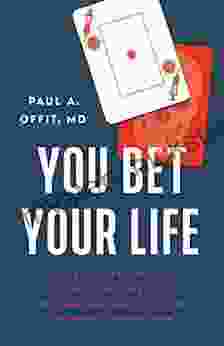
 Jesus MitchellFrom Blood Transfusions To Mass Vaccination: The Long And Risky History Of...
Jesus MitchellFrom Blood Transfusions To Mass Vaccination: The Long And Risky History Of...
 Ernest HemingwayYour Child Development Ages And Stages: A Journey of Growth and Discovery
Ernest HemingwayYour Child Development Ages And Stages: A Journey of Growth and Discovery William GoldingFollow ·3.5k
William GoldingFollow ·3.5k John UpdikeFollow ·12.9k
John UpdikeFollow ·12.9k Osamu DazaiFollow ·7.8k
Osamu DazaiFollow ·7.8k Art MitchellFollow ·15k
Art MitchellFollow ·15k Angelo WardFollow ·7k
Angelo WardFollow ·7k Vic ParkerFollow ·7.7k
Vic ParkerFollow ·7.7k Howard PowellFollow ·7k
Howard PowellFollow ·7k Demetrius CarterFollow ·6.3k
Demetrius CarterFollow ·6.3k

 Henry David Thoreau
Henry David ThoreauHow To Bake In Unique Way: Unleash Your Culinary...
Baking is an art form that transcends the...

 F. Scott Fitzgerald
F. Scott FitzgeraldAcademic Magic: Unveil the Secrets of The Last Magus
Delve into a Realm of...
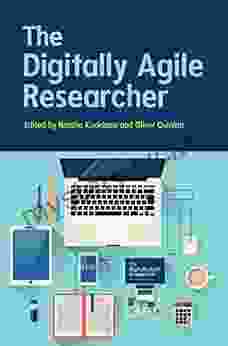
 John Green
John GreenThe Digitally Agile Researcher in UK Higher Education:...
In the rapidly...
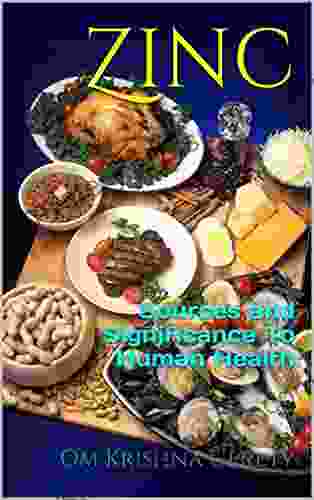
 George Orwell
George OrwellZinc: Sources And Significance To Human Health
Zinc, an essential trace mineral, plays a...
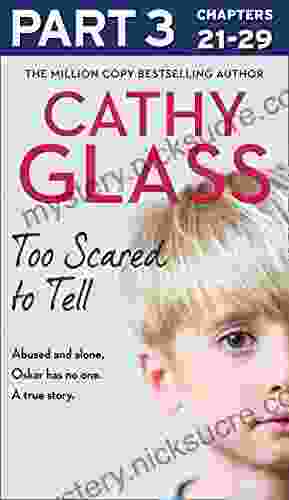
 Mario Simmons
Mario SimmonsToo Scared to Tell: A Harrowing and Thought-Provoking...
In the realm...
4.2 out of 5
| Language | : | English |
| File size | : | 9004 KB |
| Text-to-Speech | : | Enabled |
| Screen Reader | : | Supported |
| Enhanced typesetting | : | Enabled |
| Word Wise | : | Enabled |
| Print length | : | 22 pages |
| Lending | : | Enabled |




